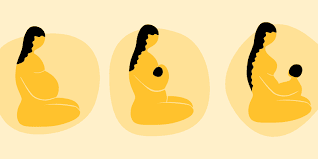Bringing a new life into the world is a miraculous journey, but the period immediately following birth – often referred to as the "sacred window" in many traditions – is equally crucial, focusing entirely on the mother's recovery and nourishment. In various cultures, including across India, specific practices are followed to help the new mother regain her strength, balance, and vitality. One such beautiful tradition is often referred to as "Bananthana" or dedicated postpartum care.
We recently received a heartfelt account from one mother about her personal Bananthana experience, guided by the wisdom of her own mother. Her story beautifully illustrates the depth and care embedded in these ancestral practices.
(A note: Postpartum traditions vary greatly across regions and families. This post shares one personal perspective and is not intended as universal medical advice.)
For this mother, the postpartum care period extended for about 3-4 months and involved a structured routine focused on rest, warmth, specific dietary practices, and traditional remedies. She emphasizes the invaluable presence of her mother, a testament to the community and familial support inherent in these traditions. Here are some key practices she shared from her experience, often commencing around 10 days after delivery:
1. Internal Nourishment and Immunity:
● Dashamoolaristha: A cornerstone was taking Dashamoolaristha for about 1.5 months. This classical Ayurvedic tonic is traditionally valued for its properties in supporting overall health, boosting immunity, and aiding in recovery after childbirth. The focus is on helping the mother stay healthy, which is vital, especially if she is breastfeeding.
● Later Tonics: As the recovery progressed (around 2.5 months), other traditional preparations like Shunti Lehya (often ginger-based, known for digestion and warmth), Shatavari Lehya (Shatavari is revered for supporting female reproductive health and lactation), Kade Maddu, and Antina Unde were incorporated for continued strength and nourishment.
2. Warmth and External Care:
● Hot Water Baths: Taking baths in very hot water was a key practice. Traditionally, this is believed to help with lactation and muscle relaxation.
● Oil Massage (Bananthi Thaila): Before the bath, a thorough self-massage with a medicated oil (referred to as Bananthi Thaila) mixed with turmeric and black cumin seeds was performed. This massage is traditionally thought to aid in faster physical recovery, improve circulation, and support lactation.
● Abdominal Binding: Tightly tying the stomach, either with traditional cotton cloth or modern belts, was consistently practiced. This is commonly done to help support the abdominal muscles and help the uterus return to its normal size.
3. Dietary Practices for Healing and Digestion:
● Always Hot Food and Lukewarm Water: A strict rule was consuming only hot meals and drinking lukewarm water. In Ayurveda, maintaining warmth is crucial postpartum to support digestion (agni) and pacify Vata.
● Specific Spices: The diet heavily featured items made with black pepper, cumin seeds, and ajwain (carom) seeds. A powder made from these three spices was often mixed with rice and ghee. These spices are traditionally known for their digestive, warming, and vata-balancing properties.
● Ghee, Milk, and Curd: Generous amounts of ghee, milk, and thick curd were advised and consumed. These are considered highly nourishing and building foods in Ayurveda.
● Banana Flower: Preparations made from banana flowers were also part of the diet, as seen in various traditional postpartum meal plans.
4. Rest is Paramount:
● The account strongly emphasizes the critical importance of rest. Listening to elders' advice to get proper rest is essential. This includes sleeping straight with legs close together, covered with a blanket, to support the body's alignment and healing.
5. Hydration and Micronutrients:
● Drinking plenty of water is highlighted, alongside consuming foods rich in iron and Vitamin C to aid recovery and combat potential post-delivery challenges like hair fall (which is also noted as a normal occurrence around 2 months postpartum).
Honoring the Wisdom of Elders
This personal narrative is a beautiful reminder of the profound knowledge passed down through generations. The practices of Bananthana, while perhaps seeming simple, form a comprehensive system aimed at gently guiding the new mother back to health. Listening to and respecting the wisdom of our elders can connect us to effective natural ways of nurturing ourselves during this tender phase of life.
Supporting Your Postpartum Journey Naturally
Finding authentic, high-quality traditional ingredients and formulations can sometimes be challenging in our busy lives. We understand the desire to connect with these time-tested practices.
At Laxmi Ayurvedic Store, we offer a range of authentic Ayurvedic products that align with many of these traditional postpartum care principles, including classical tonics and massage oils, to support your natural recovery journey. Explore our collection designed to support new mothers: https://www.aryuvedicstore.com/categories/balant-pregnancy/2295293000000044314
Disclaimer: This blog post is based on traditional Ayurvedic practices and a personal account, and is for informational and educational purposes only.




